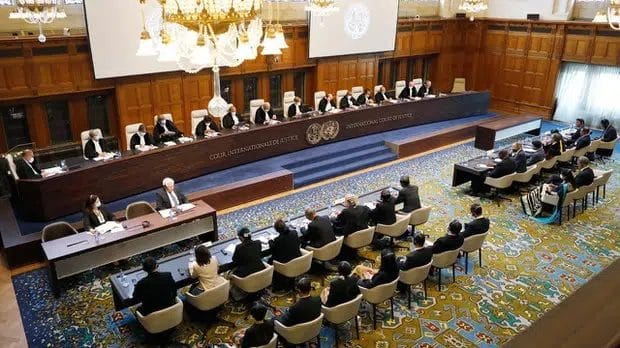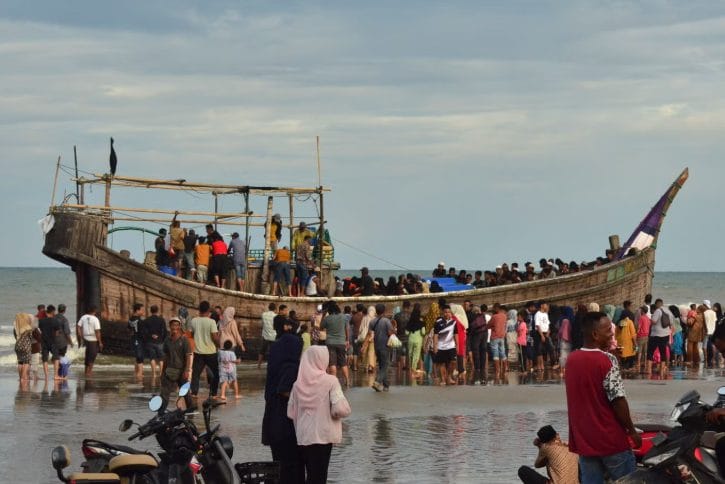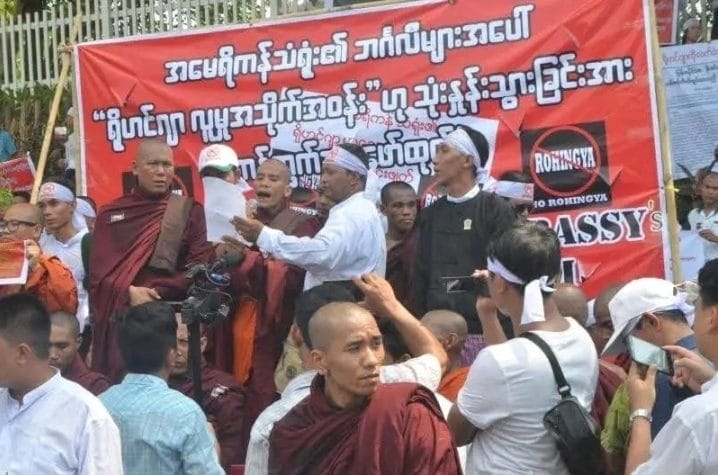Arakan News Agency
Media reports on Monday indicated that India forcibly deported dozens of Rohingya refugees during May by throwing them into international waters near Myanmar’s maritime border which forced them to swim to reach Myanmar’s coasts.
The Indian “Maktoob Media”, citing sources, reported that on May 8, Indian forces dumped 43 Rohingya, including women, children, and elderly, near the maritime border with Myanmar and provided them only with life jackets. The report noted that this operation occurred on the same day that the Solicitor General of the Indian Supreme Court confirmed that any deportation would be carried out strictly according to the procedures stipulated by law.
Rohingya activist David Nazir told “Maktoob” that his parents were flown from New Delhi to a port in the Andaman and Nicobar Islands and were later forced to board Indian warships with their hands tied and their eyes blindfolded and remained in this condition throughout the journey.
The network also quoted two Rohingya refugees as saying that their family members were among those arrested in India and deported by sea, and that they managed to reach Myanmar swimming. It noted that all 43 Rohingya refugees, including 13 women, were registered with the United Nations High Commissioner for Refugees (UNHCR) in India and were detained by Delhi police officials on the pretext of collecting biometric data.
A petition, being prepared by lawyers to the Indian Supreme Court, stated that “children as young as 15, minors as young as 16, elderly people as old as 66, and people suffering from cancer and other conditions were among those abandoned at sea without regard for their lives or safety.”
Several detainees told Maktoob that they were asked whether they wanted to be sent to Myanmar or Indonesia. Fearing for their lives, they requested not to be deported to Myanmar and to be left in Indonesia. However, the authorities deceived them and left them in international waters under false assurances that someone would arrive to escort them to Indonesia, according to the petition.
The petition also explained that one detainee, who contacted her relatives in India, reported that she and others were sexually assaulted and harassed by officials before being thrown into international waters. It notes that “in many cases, children were forcibly separated from their mothers, and that a 16-year-old girl was separated from her family before being abandoned in international waters near the coast of Myanmar.”
The petition filed with the Supreme Court seeks an order to take immediate steps to repatriate the Rohingya by air to New Delhi from wherever they are and to release them from detention.
“Although the UNHCR has recognized them as refugees, they remain excluded from legal protection under Indian law, which lacks a formal refugee framework and increasingly relies on the Foreigners Act to justify detention and deportation,” said Fazal Abduli, a lawyer and petitioner against the deportation of the Rohingya.
“Moreover, India’s disregard for the principle of non-refoulement, a binding rule of customary international law, not only puts lives at risk but also signals a shrinking humanitarian space for the world’s most persecuted minority”, He added to Maktoob.
A few days ago, several Rohingya activists raised concerns that India would deport dozens of Rohingya who were recently arrested in the country. Authorities in the Indian state of Assam also announced a policy of immediately deporting Rohingya refugees arriving from Bangladesh back to India, rather than taking legal action against them, including arrest or bringing them before courts and then imprisoning them.
India is not a signatory to the 1951 Refugee Convention or its 1967 Protocol. It treats the Rohingya in the country as illegal immigrants, arresting and deporting them, even those registered with the UNHCR.
More than a million Rohingya have fled Rakhine State in western Myanmar in recent years after the Myanmar military launched a genocidal campaign against them in 2017. The separatist Arakan Army launched a military campaign to seize control of the state in November 2023, also targeting them with violence, displacement, and forced conscription. Most of them live in overcrowded camps in Bangladesh, while others seek to move to other countries in search of better living conditions.

















